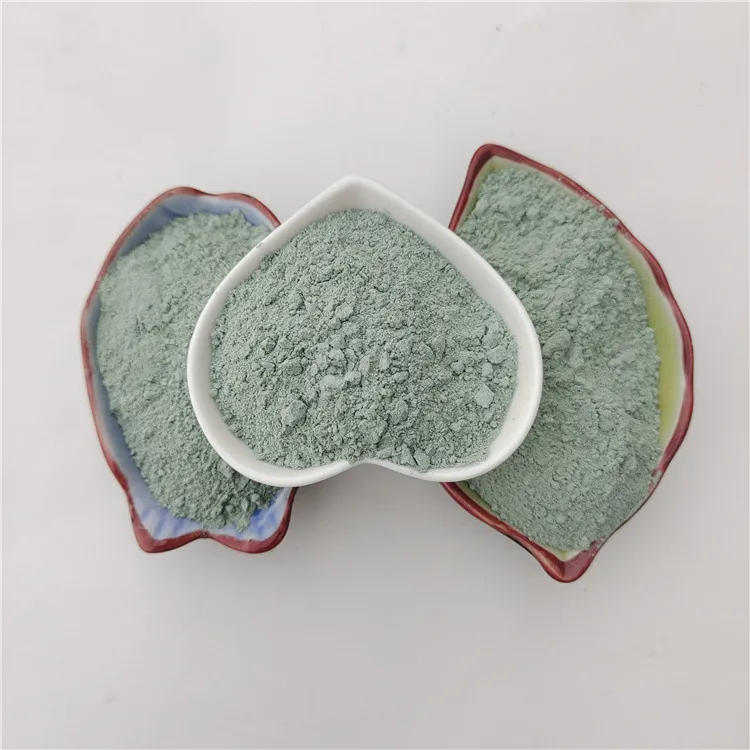
iron powder cas number
Iron Powder An Overview of Its Properties, Uses, and CAS Number
Iron powder, a finely divided form of iron, has garnered attention in various industries due to its unique properties and versatility. The Chemical Abstracts Service (CAS) number for iron powder is 7439-89-6, which serves as a unique identifier for this material in chemical databases and regulatory frameworks. This article explores the properties of iron powder, its applications, and the significance of its CAS number.
Properties of Iron Powder
Iron powder is characterized by its small particle size, typically ranging from 3 to 200 micrometers. The reduced size of these particles increases their surface area, which enhances their reactivity compared to bulk iron. Iron powder can be produced through several methods, including atomization, reduction of iron oxide, and the mechanical milling of iron. The resulting powder may vary in purity, density, and particle shape, depending on the production method and the intended application.
One of the notable properties of iron powder is its magnetic nature. Iron has ferromagnetic properties, meaning it can be magnetized and retain its magnetic state. This characteristic makes iron powder useful in various magnetic applications, such as the production of magnetic cores for electrical devices.
Iron powder is also susceptible to oxidation, especially when exposed to air and moisture. Therefore, its storage and handling require careful consideration to avoid degradation of quality. In general, the powder should be stored in a dry, controlled environment to maintain its properties.
Applications of Iron Powder
The applications of iron powder are diverse, spanning multiple industries
. Here are some key areas where iron powder is utilized1. Metal Powder Metallurgy Iron powder is widely used in the production of sintered metal components. The powder is compacted into specific shapes and then heated to bond the particles without melting them. This process allows for the manufacturing of complex shapes with precise tolerances, reducing material waste.
2. Additive Manufacturing With the rise of 3D printing technologies, iron powder plays a crucial role in additive manufacturing processes such as selective laser sintering (SLS). The powder is layer-by-layer fused to create intricate metal parts, enabling innovative designs that were previously unattainable through traditional machining.
iron powder cas number

3. Coatings and Inks Iron powder is employed in formulations for magnetic and conductive coatings, as well as inks. In particular, its magnetic properties are exploited in applications like magnetic paints and printer inks that require electromagnetic interference shielding.
4. Chemical Reactions In the chemical industry, iron powder acts as a reducing agent in various reactions. It is utilized in the production of chemicals such as iron sulfide and plays a role in wastewater treatment processes.
5. Battery Technology Research into energy storage solutions has highlighted the potential of iron powder in batteries. Its abundance, low cost, and safety make it an attractive alternative to more expensive metals like lithium for battery cathodes.
6. Nutritional Supplements Iron is an essential mineral for human health. Iron powder can be used as a dietary supplement to address iron deficiency anemia, contributing to improved health outcomes for individuals suffering from this condition.
Significance of the CAS Number
The CAS number 7439-89-6 is more than just a simple numeric code. It serves several vital functions in the chemical industry
- Identification The CAS number provides a unique identifier for iron powder, distinguishing it from other substances and facilitating precise communication regarding the material. - Regulatory Compliance Industries must adhere to various regulations concerning the use and handling of chemicals. The CAS number is essential for compliance documentation, helping businesses navigate the complex landscape of chemical safety and environmental regulations.
- Supply Chain Management Suppliers and manufacturers can reference the CAS number to ensure they are providing the correct substance, thus minimizing the risk of cross-contamination or mislabeling.
Conclusion
In summary, iron powder is a versatile material that plays a critical role in multiple applications, from manufacturing to nutrition. Its unique properties, including magnetic characteristics and reactive nature, make it valuable in various industries. The CAS number 7439-89-6 is an essential tool for the identification and regulatory compliance of iron powder, enhancing safety and efficiency in its use. As industries continue to expand their reliance on this material, understanding its properties and applications will be crucial for leveraging its full potential.
Share
-
Premium Resin Coated Sand - High Heat Resistance CastingNewsJul.31,2025
-
High Quality Silicon Carbide Grit for Abrasive ApplicationsNewsJul.30,2025
-
High-Quality Ceramsite for Plants & Gardening | Lightweight PebblesNewsJul.29,2025
-
Premium Burgundy Glass Marbles for Vases & Shooter GamesNewsJul.29,2025
-
High Purity Quartz Sand for Industrial and Ground ApplicationsNewsJul.29,2025
-
High-Quality Barite Powder for Drilling & Industrial UseNewsJul.29,2025






